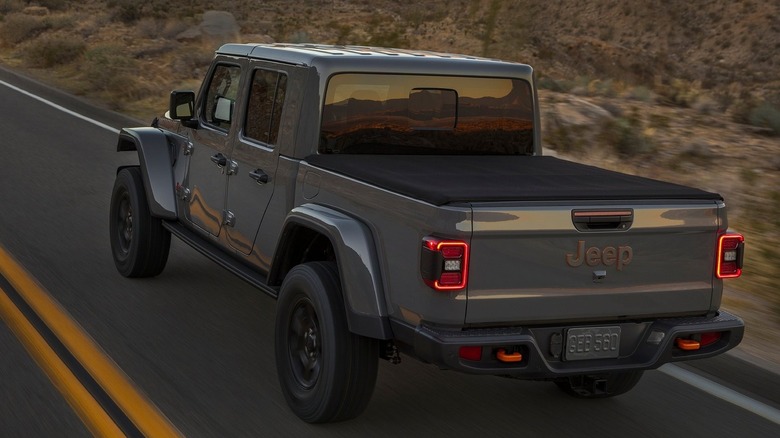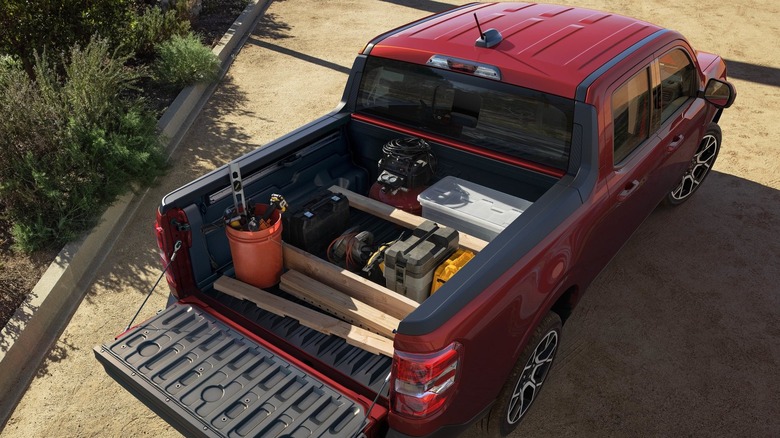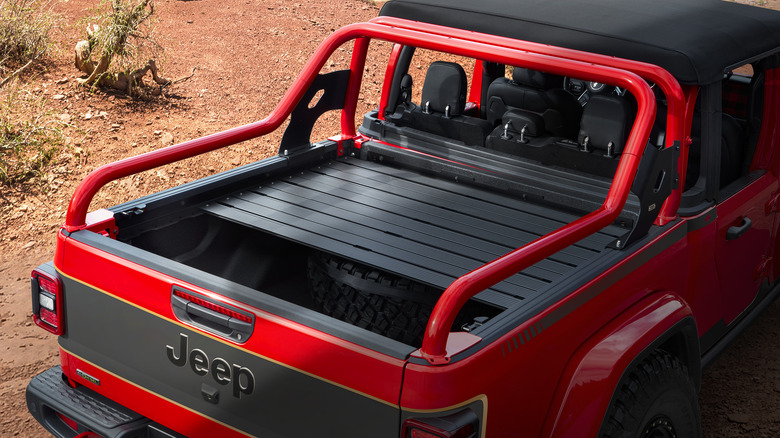Can A Tonneau Cover Really Save You Money On Gas, Or Is It Just Another Myth?
Gas in America is pretty cheap compared to world average for prices, but it's always nice to try and extend your mileage, save a few bucks, and protect a couple of ice caps in the process. If you are looking for fuel-efficiency in your truck, then you might have heard that fitting a tonneau cover is a good place to start, but is this true? And, if so, just how much fuel could covering your pickup bed really help to save?
A tonneau cover is a handy accessory that turns your truck bed into a covered trunk. It's the kind of kit that's for people who wish they had the practicality of a wagon or SUV, but still want the conveniences of a pick-up truck. Covering up your truck bed might not sound like a great way of increasing efficiency, but the idea behind this rumor is that the cover could make your vehicle more aerodynamic. A more aerodynamic truck would be a more efficient truck, as less resistance equates to less fuel burned to get you up to speed.
Why use a tonneau cover?
Covering your truck bed with a tonneau cover brings a few immediate benefits: it keeps the rain off all the stuff you're carrying, adds an extra level of security to protect our belongings and, in the eyes of some people, even sharpens up the styling on your truck. Should you add saving money on gas to the list of advantages, though?
This is a claim that's been batted around in truck circles for a while now, as it's claimed that fitting a cover to your bed will decrease the air resistance on your truck as it drives along. Using the cover means that air rushing over the bed flows across the truck's body smoothly as it's not trapped by the bed walls, explained Forbes. The cover means there could be less turbulence around the truck and, therefore, less drag as you're driving along, which some owners report led to an increase in fuel economy. However, others have reported little difference in mpg — keep in mind that there are other factors that go into mpg like driving habits and vehicle weight, though.
What about the tonneau cover stats?
The fuel savings you can expect from using a tonneau cover are a little hit and miss, but when Forbes tested the effectiveness of a cover on a RAM TRX the results were pretty significant. Before fitting the cover, the TRX could manage 8 to 9 mpg in the city and up to 12 on the highway. While there was little difference in town, Forbes stated the economy on the highway was much better:
Thanks to the improved aerodynamics of a covered bed, I am now noticing 12.5 to 13 mpg on the open road. On a recent roundtrip from home to LAX, I noted 13.4 mpg over the 100.5-mile trip (including the stop-and-go traffic around the airport). On a second trip to the San Fernando Valley and back, I averaged 14.7 mpg over the 54.0-mile trip.
If you want to get the best fuel savings from your cover, then it's important to opt for a simple, lightweight cover as heavier options could negate any advantages, Real Truck added in research of its own.
Other ways of increasing efficiency
You'll be pleased to hear that fitting a tonneau cover isn't the only way to try and increase the woefully bad fuel efficiency of your pickup truck. If you're not satisfied with 8 mpg (who would be?) from your pickup then there are a few other tricks you can try.
Taping up the seams on your car is a particularly obsessive way to make your vehicle more aerodynamic, as is ensuring your tires are at the correct pressure whenever you head out on a long journey. You can also take steps like limiting when you use the A/C, using the correct oil in your engine, and avoiding idling to keep fuel economy high.
The easiest way to up your economy is to watch how you drive, however, as lower speeds can save you valuable cash. In fact, every additional 5 mph that you travel above 50 mph can cost you an additional seven cents per gallon of gas.



